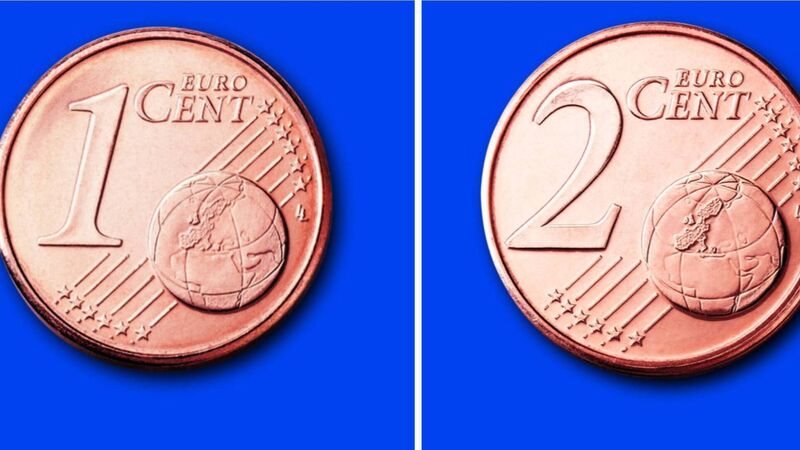Majority of Irish people support abolishing 1c and 2c coins

70% of Irish people are in favour of getting rid of the two smaller denominations of the euro.
Support for the abolition of 1c and 2c coins is growing in Ireland with 7 out of 10 consumers now in favour of doing away with the smaller value euro coins.
A new survey conducted on behalf of the European Commission reveals that two-thirds of all citizens in the euro-area support the idea of withdrawing 1c and 2c coins from circulation and applying mandatory rounding of prices for goods and services.










